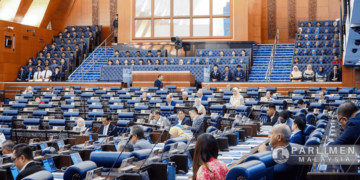A pressing issue in contemporary society: the inadequacy of legal frameworks in dealing with cyberbullying, especially when it leads to severe consequences such as suicide. The article contrasts two recent court cases in Malaysia to highlight the disparity in legal outcomes: a minor fine for cyberbullying versus a severe punishment for a robbery.
The article begins by expressing shock at the Kuala Lumpur Magistrate’s Court decision to impose a mere RM 100 fine on an accused in a cyberbullying case, leading to the suicide of a social media influencer. This leniency is contrasted with the harsh sentence handed down by the Teluk Intan Sessions Court to a man for robbery. This stark comparison serves to underline the perceived injustice and lack of proportionality in legal penalties.
Dato’ Sivakumar commends the police for their prompt action in arresting the accused but critiques the limitations of the existing legal framework. Specifically, he points out that the accused was charged under Section 14 of the Minor Offenses Act 1955 (Act 336), which carries a maximum penalty of a RM 100 fine. This section of the law, he argues, is outdated and inadequate for addressing the complexities and seriousness of cyberbullying.
Based on the opinion from the Attorney General’s Department, which suggested that the penalties under Section 14 needed to be reviewed. Dato’ Sivakumar expresses frustration that no substantial changes have been made since then, questioning why the same nominal fine is still being imposed for such serious offenses.
A call to action for the government to amend the Minor Offenses Act and introduce specific cyber laws those are robust and reflective of the current digital age. He urges the government to expedite planning and researches related to cyber legislation and present a comprehensive cyber act in Parliament. This act should aim to protect cyber users effectively and be passed with a substantial majority.
In conclusion, a poignant critique of the current legal system’s handling of cyberbullying cases in Malaysia. It emphasizes the need for updated and specific legislation to ensure justice is served and to prevent future tragedies. I suggest the legislative reform is timely and necessary, highlighting a significant gap in the legal protection afforded to victims of cyberbullying.
Dato’ N. Sivakumar
Chairman & Patron
Persatuan Kebajikan Dinamik Sinar Kasih Malaysia (DSK)







































































Discussion about this post